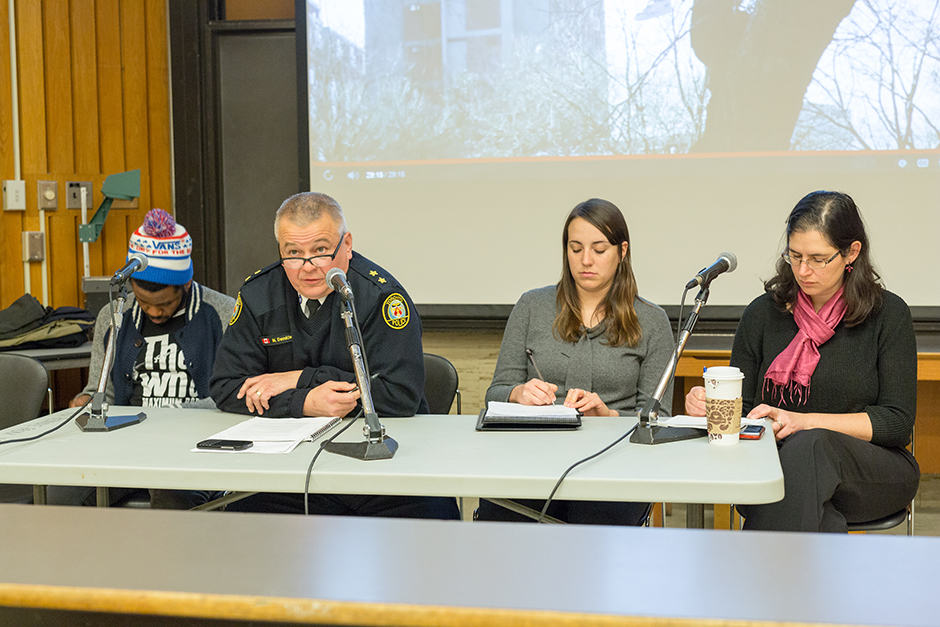Last Thursday, the Arts & Science Student Union (ASSU) and the Policing Literacy Initiative (PLI), a public education and advocacy group, held a panel discussion at New College to discuss the evolving relationship between police in Toronto and the communities they serve.
Panelists included PLI member Wyndham Bettencourt-McCarthy, Toronto Police Services Inspector Myron Demkiw, Noa Mendelsohn from the Canadian Civil Liberties Association, and Gary Newman from Breaking the Cycle, an early identification and prevention program.
Moderated by Zakaria Abdulle, a UTMstudent who serves as a research analyst for PLI, the panel began with a screening of PLI’s documentary, Crisis of Distrust, which provides first-hand accounts of carding, a practice where police officers stop individuals and obtain their personal information.
“There are people that talk to us that… are lawyers or they’re journalists and they have a voice, a big booming voice. But there are some people that talked in this film that wouldn’t have that platform,” says Dan Epstein, the documentary’s director.
Following the screening, Abdulle outlined the progress that has been made surrounding police practices, including a one-year pilot project to explore the use of body-worn cameras, as well as the suspension of the practice of carding.
Bettencourt-McCarthy says that vigilance is needed when a new policy on carding is released later this year: “I think for a carding policy to be solid, the police have to define what a valid public safety reason is for a police officer to stop an individual… The second contentious element is that a police officer, when they stop someone and begin to engage with them that they have to tell the person that they are allowed to walk away.”
With regards to body-worn cameras, Demkiw explains the complications that involve managing the large amount of data, since the work police often deal with traumatic events in people’s homes.
“Body-worn video is a very complicated, difficult thing. It has a number of implications, not the least of which is privacy implications for everybody involved,” Demkiw says.
During the question-and-answer portion of the panel, the issue that body-worn cameras would not necessarily stop racial profiling or guarantee police officer prosecution was put forth.
Demkiw responded by speaking about the Police and Community Engagement Review and its process of implementing a set of 31 recommendations, including fair and impartial police training and the possibility of a tribunal hearing in the case of explicit bias on the part of a police officer.
Moving forward, both Mendelsohn and Bettencourt-McCarthy voiced the need for accountability . “What I’d like to see in the new police chief, which will be announced this spring, is that commitment to accountability, to sharing information with the public, to acknowledging and accepting research that is done on police behaviour, and to ensure that there is a disciplinary framework where there are consequences,” says Bettencourt-McCarthy.
The panel also touched on the mental health impacts of carding, as well as the issue that racial profiling speaks to broader issues in society. “The aftermath of carding exists. It’s real, you can touch it, it’s there in the neighbourhoods… We’re dealing with young men and communities who have been impacted by carding. That impact is terrible to them because they’re coming from neighbourhoods that are already deteriorating — already falling apart,” says Newman.


